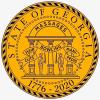Hue Henry Reads From Take Down Saturday
Pub Notes
If you could go hear David describe how he slew Goliath—what size rock he chose, which sling, how close he was, how scared he was, how everybody told him Goliath was unbeatable, that he would crush David—you’d go, wouldn’t you?
Well, we had a Goliath right here in Athens at the University of Georgia, who ruled through terror and systematically eliminated his enemies, no matter how distinguished or prominent. Our Goliath had the support of the chancellor and the Board of Regents and the legislature, and he was unbeatable on campus, until a lone teacher stood up against him and found a David to fling the rock.
Actually, he was a Hue—Hue Henry—and, with fellow attorney Pat Nelson, he accepted Jan Kemp’s lawsuit contesting her firing and went up against the administration of UGA President Fred C. Davison, the Goliath who ruled the campus with an iron fist.

In his book Take Down, reviewed in Flagpole here, Hue gives us a blow-by-blow description of the trial that pitted Pat and him against the university’s hired gun and the whole state power structure. Hue is the only one left who could have written it. Fortunately, he finally got it all down on paper. Take Down reads like a legal thriller distilled to the final showdown in the courtroom, and it is written in Hue’s voice, with his typical blunt assessments of the participants.
But, here’s the deal: you can hear Hue’s voice yourself at 6:30 p.m. in the Prince Avenue fire hall, sponsored by Avid Bookshop, this Saturday, Feb. 9. Hue will read from and sign copies of Take Down, and he’ll talk about that epic trial and answer questions, and, knowing Hue, probably make several inflammatory statements that wouldn’t have been appropriate for the book.
If you know Hue, too, you’ll realize how important it is to get his personal take on his book in that Geechee drawl that has charmed juries and infuriated prosecutors all over Georgia and the South. If you don’t know Hue, this is your opportunity to get his book and get his voice fixed in your mind as you read it.
Who was Jan Kemp? She was an assistant professor in UGA’s Developmental Studies program back in the late 70s and early 80s. She taught English in the program, which was set up to help students who were admitted to the university but weren’t quite ready to do college-level work. Kemp really believed in the program and in her own mission to help her students succeed in college. They couldn’t just stay in the program forever. There were rules and regulations in place that determined how long students could be in Special Studies before they had to move back into the regular curriculum to sink or swim.
Kemp began to realize that Special Studies was being misused on behalf of some students with well-connected parents and for athletes. The rules were waived for how many chances they got to bring their work up to college level. Kemp complained. She brought attention to the misuse of her program. She pointed out that Special Studies was, in effect, being used to create the illusion that boys playing football could actually get a college education, when they would get nothing more from the university, once their athletic eligibility ended.
The result of Kemp’s protest was that her supervisors and their superiors suddenly decided that she lacked the credentials necessary for her job and that her employment would be terminated. If you were not around then, you cannot imagine what a common occurrence that was at that time. People within the university who stood up to the dictatorial methods of the Davison administration were demoted, transferred, removed—vice presidents, deans, department heads, assistant professors—but always for some made-up deficiency that protected the administration from legal consequences and always shielded the president, while his administrators did his dirty work.
What made the Jan Kemp affair doubly dangerous was the football thing. The athletic department, aided and abetted by the Davison administration, was doing everything it could to keep its players eligible during a run toward the national championship. Jan Kemp’s million-dollar judgement against the university system, orchestrated by Hue Henry, focused the glare of national publicity on the subversion of academic standards for the benefit of athletics and pierced the veil of administrative legerdemain that had protected the president.
As a result of the trial and its publicity, Davison eventually resigned, and academic assistance for athletes was reorganized. A painful era ended at the university, because a principled teacher stood up to power and found a champion with unerring aim. Come hear Hue tell the story at 6:30 p.m. in the firehall Saturday. There will be wine available, should you want to toast him.
Keywords
More by Pete McCommons
-
Voting Absentee: Necessary But Not Easy
Pub Notes
-

Be Ready When National TV Comes Calling
Pub Notes
-










comments